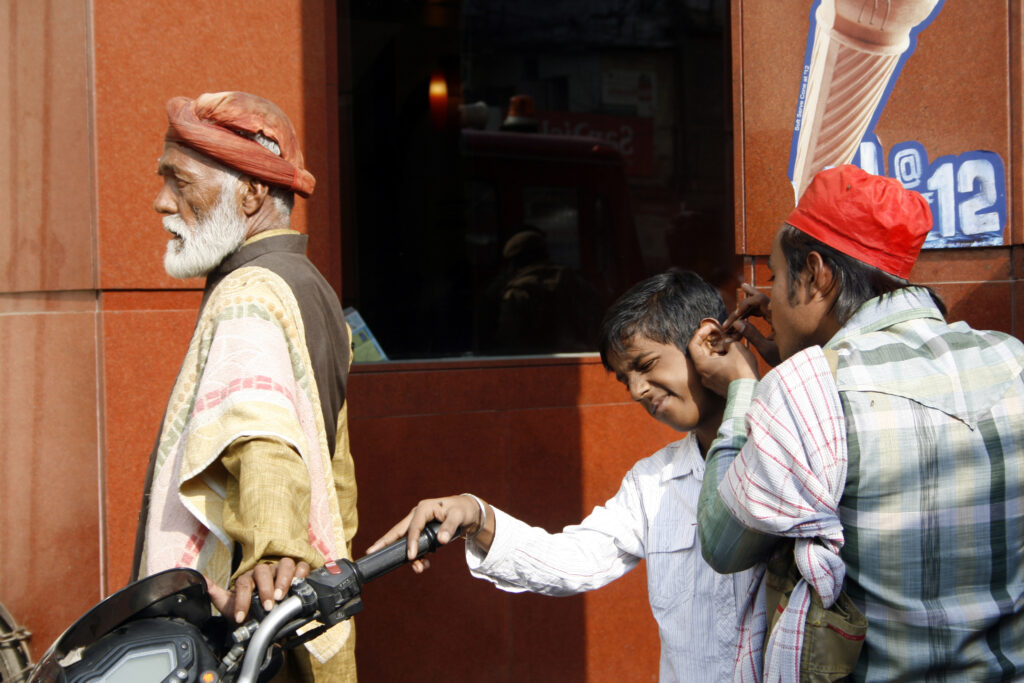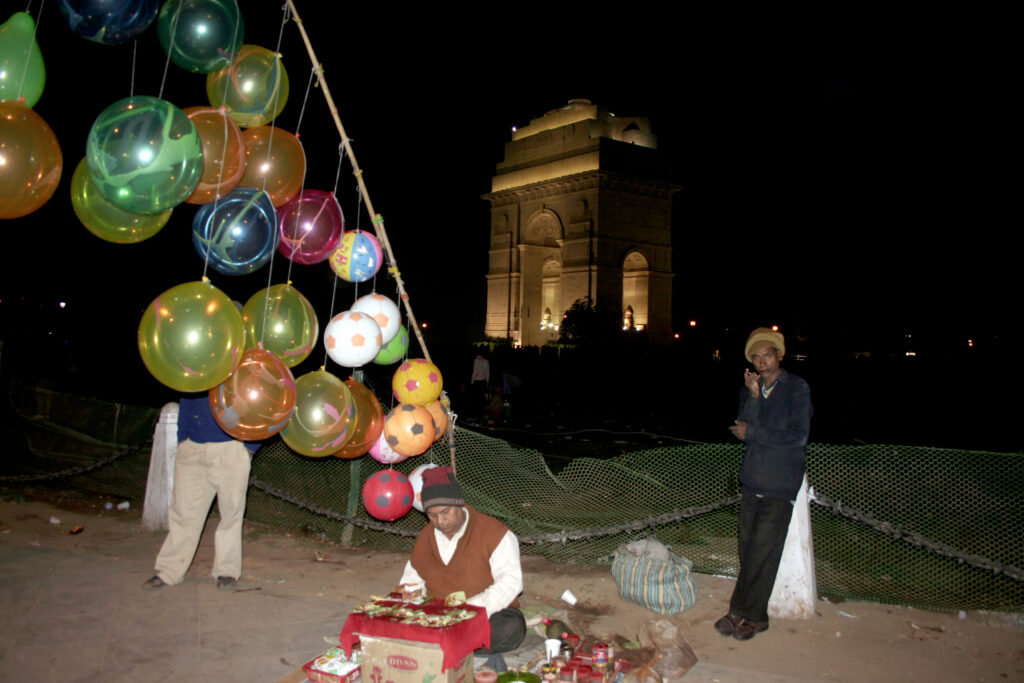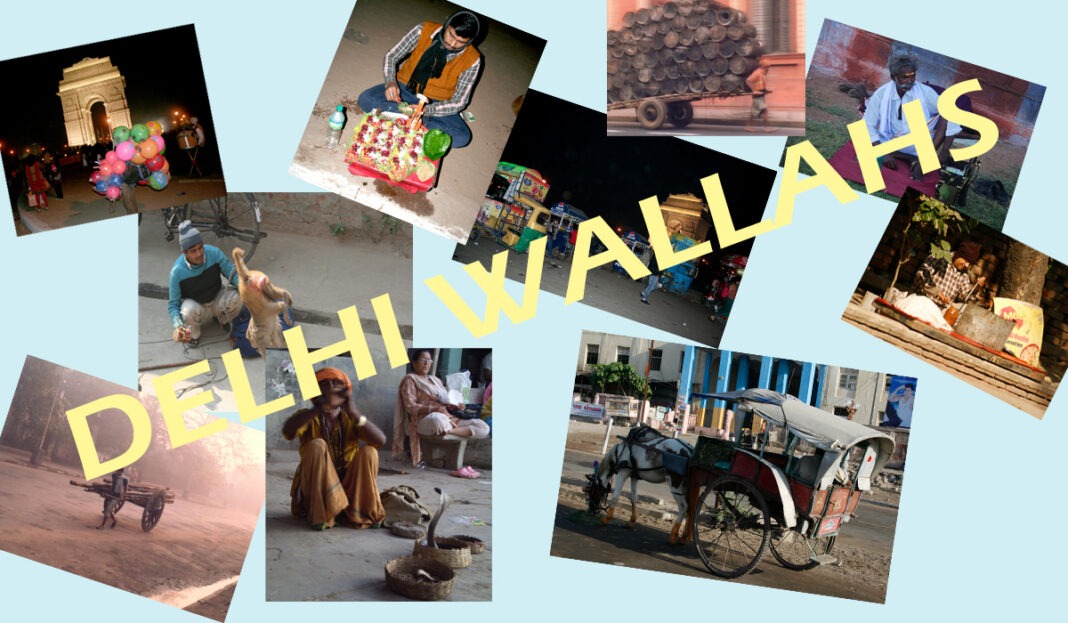INDIA. Delhi. Almost fifteen million people live in New Delhi. And among them, you can find various single entrepreneurs successfully running their businesses all over the city sidewalks.
A high percentage of these, single-man-operated businesses are run by illiterate villagers. They have migrated here from faraway places in the country, like West Bengal, Bihar, etc. They arrive in Delhi carrying only dreams of a successful and happy life, a small bundle of belongings, but they are armed with steely determination.
Wallahs of Delhi. They are the “wallahs” of New Delhi. Wallah literally means a man with a prefix, like a kaan-safai wallah (ear cleaner), which denotes a person who will clean your ears for a small amount. Just like him, there are many more whose hardworking efforts keep the city’s street economy growing. Many live on the edge of subsistence, but no one complains. The only thing they all have in common is their illiteracy, and the only word these wallahs of Delhi have for themselves is: survival.
New Delhi is the capital of India and the city of opportunities. A stroll on the busy streets and lanes in the Old City area can bring you to many such wallahs.

Kaan-safai-wallah. A kaan-safai-wallah operating in old Delhi’s lanes is one of the wallahs who has made Delhi his home since the times of the Moghuls. Though they are becoming a rare sight now, you can still spot them for a quick cleaning of your ears.
If you look around, you can spot a man wearing a red turban, the kaan-safai-wallah outside the old buildings, at the iconic Chandani Chock in front of the historic Red Fort. If he has a customer, you will find him pulling the ears of his customer and probing a stick tipped with a wad of glycerin-soaked cotton-wool in his ear. This costs the customer just Rs.50 (less than $1). It’s a straightforward matter, done with utmost care using sterilized silver sticks to avoid infection. In case the customer needs extensive cleaning, then he will use ointments like mercurochrome, and the charge will be higher, approx. Rs.150 ($2).
“Though in the past, no sterilisation of silver sticks was done, a simple water wash was enough. But during these COVID-19 times, we are very careful and take proper care to avoid any infection,” says Mr. Aasif to Transcontinental Times. Aasif added on that on a typical day before the pandemic, he used to get about fifteen or twenty customers, but the lockdowns have ruined their business. Even during the periods between lockdowns, they didn’t get many customers as everyone was worried about others getting too close to them.

‘Balloon-wallah’ (balloon seller). Moving forward, you certainly are going to encounter quite a few more ‘wallahs’ such as the roaming balloon-wallah. He roams around in colonies looking for kids playing in the streets. He carries an assortment of balloons and other small toys to please the kids and hoping to get a sale.
Wallahs determination remains amid pandemic. There are many more ‘wallahs’ like maggi–wallah (breakfast), ‘kulfi-wallah’ (ice-cream/kulfi vendor), ‘bandar–tamasha-wallah’ (monkey games performer), ‘saanp-wallah’ (serpent games), ‘chavi-wallah’ (key maker, ‘tangey-wallah’ (horse cart), ‘haath-gadi-wallah’ (handcart), and so on…Each has been impacted by the pandemic lockdowns, but their steely determination remains.




Comments are closed.